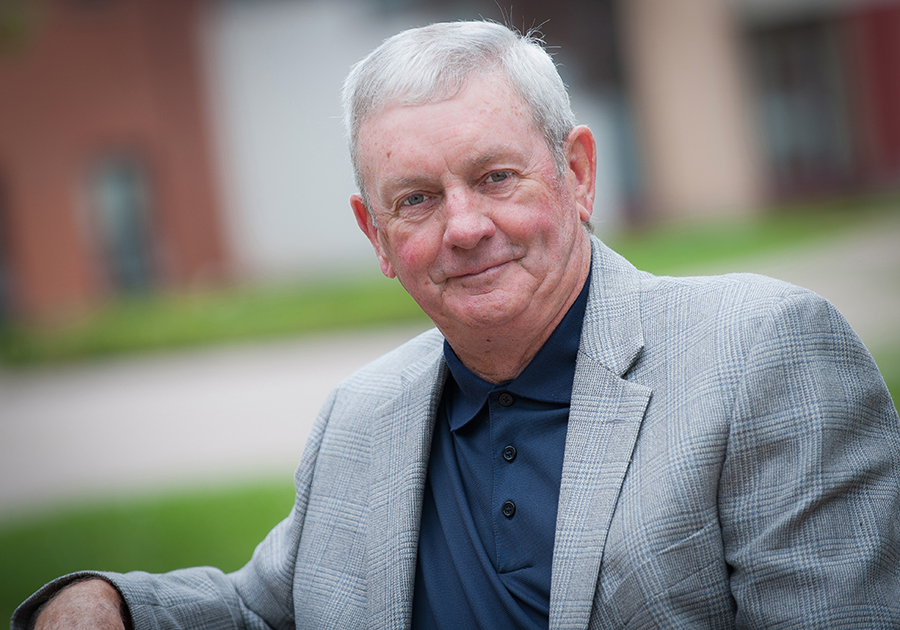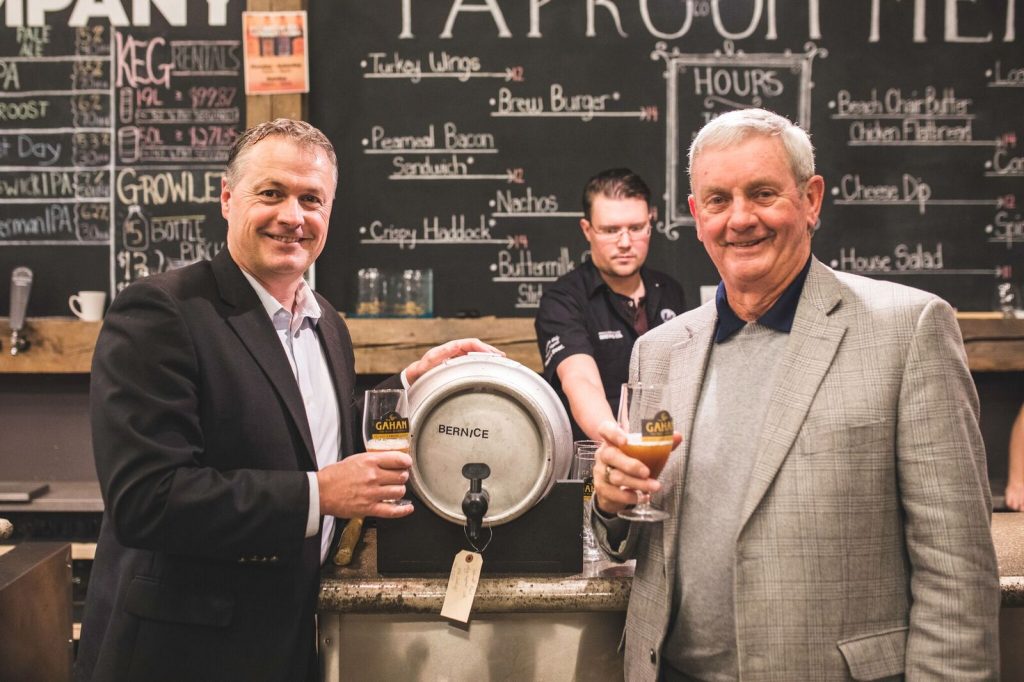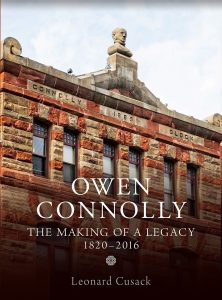From 1888 to 2016, the Owen Connolly Estate has funded approximately $3 million to help thousands of Prince Edward Island students of Irish Catholic heritage gain a higher education and achieve career success. This is the remarkable rags-to-riches story of the man who created this legacy, and the people who protected it.
Owen Connolly was a young immigrant lad escaping poverty and repression in his homeland of Ireland when he first stepped onto the docks in Charlottetown, P.E.I. in 1839. Armed with little more than determination and grit — and a brilliant financial mind — over the next forty years he rose from being a dirt-poor farmer to one of the wealthiest men on Prince Edward Island.
His story unfolds against the backdrop of the 19th-century boom times on P.E.I. By 1852, Connolly had set up his own store in Charlottetown and within a few years, he was wholesaling goods to other merchants, especially at small rural stores. He expanded into importing and exporting, banking, real estate; set up branch stores in Souris, Cardigan, and Montague; and became one of Charlottetown’s most prominent citizens.
Owen Connolly was a special kind of entrepreneur; with little formal education, he could write well and was good with numbers. When he died in 1887, he left almost all of his fortune to provide bursaries to poor Irish Catholic students from P.E.I.
The management of his estate is also an amazing story. Its many trustees, including prominent figures in the Roman Catholic church, have steered the estate through tumultuous times and continue to operate it on a sound financial basis. Today, its value remains at over $2 million.
7.5 x 10.25, 216 pages printed b/w, with 8-page ‘Appreciations Gallery’ in color
ISBN 978-1-988692-09-8 (soft cover) $29.95
CLICK HERE TO PURCHASE SOFT COVER
ISBN 979-1-988692-11-1 (hard cover with dustjacket) $49.95
CLICK HERE TO PURCHASE HARD COVER

LEONARD CUSACK is a former teacher and principal, a public servant, and a sessional lecturer in history at the University of Prince Edward Island. From 2006 to 2016, he represented P.E.I. on the Historic Sites and Monuments Board of Canada.
Leonard’s previous books include A Magnificent Gift Declined: The Dalton Sanatorium of Prince Edward Island 1913-1923 and A Party for Progress: The P.E.I. Conservative Party 1770-2000. He lives in Emyvale, P.E.I.

LORI MAYNE is a writer and researcher with her own Irish roots. She is a native of Emerald, P.E.I., and granddaughter of Eileen McSweeney, originally from Tullow, County Carlow, Ireland. Lori also has strong ties to UPEI, obtaining her Bachelor of Arts with honors in history there, before completing her Master of Journalism at Carleton University in Ottawa. She teaches writing at UPEI, as well as writes and edits on a freelance basis.

“In turbulent economic times, Connolly’s entrepreneurial skills were extraordinary. His rise from poor Irish Catholic immigrant to elite businessman was a rare feat, indeed, in P.E.I. history. When Connolly died in 1887, his will revealed that he wanted the profits from his estate to help poor, Irish Catholic boys gain an education. . .”
from Preface




Photos from the book launch: Author Leonard Cusack with Brian McKenna, chair of the Connolly Estate trustees (top left), Premier Wade MacLauchlan wrote the Foreword for the new book (top right), Randi Doyle was one of the first female recipients of the Connolly bursary, and spoke at the UPEI launch (middle right), and Author Leonard Cusack and researcher Lori Mayne signing copies of the new book (bottom).
“Owen Connolly was a special kind of entrepreneur. With little formal education, he could write well and was good with figures. He believed in education as a path to progress; this would become his core legacy.“
Wade Maclauchlan, From foreward


